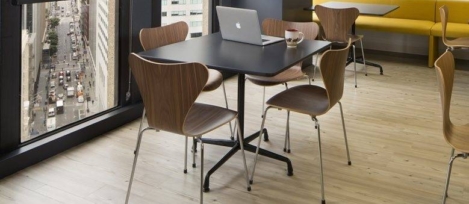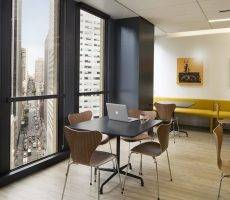September 20, 2016
New project invites organisations to explore issue of workplace wellbeing 0
 Are our offices making us sick? This is the question addressed by a new research project looking at the link between health in the workplace and access to the natural environment. The study is backed by the Soil Association, is endorsed by Kate Humble and Hugh Fearnley Whittingstall and draws on studies from the past thirty years which have also addressed the issue. The Good Life Project aims to provide evidence-based and cost-effective solutions to the benefits of nature in making businesses happier, healthier and more profitable. The project is led by behaviour expert and author Jez Rose along with a team of psychologists and neuroscientists and is endorsed by the Soil Association. The Project is designed to overcome the problem of workplace absenteeism by trying out a range of workplace initiatives based around the natural environment to see what sort of difference they make to an employee’s feeling of wellbeing.
Are our offices making us sick? This is the question addressed by a new research project looking at the link between health in the workplace and access to the natural environment. The study is backed by the Soil Association, is endorsed by Kate Humble and Hugh Fearnley Whittingstall and draws on studies from the past thirty years which have also addressed the issue. The Good Life Project aims to provide evidence-based and cost-effective solutions to the benefits of nature in making businesses happier, healthier and more profitable. The project is led by behaviour expert and author Jez Rose along with a team of psychologists and neuroscientists and is endorsed by the Soil Association. The Project is designed to overcome the problem of workplace absenteeism by trying out a range of workplace initiatives based around the natural environment to see what sort of difference they make to an employee’s feeling of wellbeing.








































